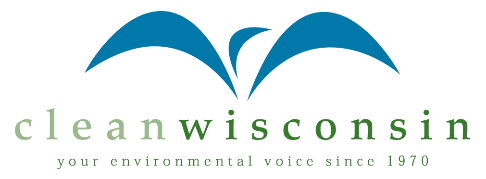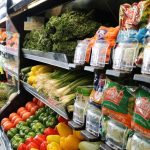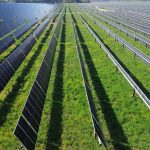Agricultural and environmental groups partner on Clean Water budget priorities
MADISON, Wis. — Four agricultural and environmental groups, known as the Clean Water Initiative, are calling for significant investments in the next state budget as part of a long-term effort to address Wisconsin’s water quality issues.
Clean Wisconsin, the Dairy Business Association, The Nature Conservancy in Wisconsin and WI Land+Water today put forth a blueprint for bold solutions to provide clean drinking water for affected families along with appropriate incentives for farmers and adequate county services to protect water quality.
The plan lays out investments of $3.7 million per year for the state’s Well Compensation Grant Program, which helps rural families rehabilitate contaminated private wells to provide safer drinking water, and grants or direct assistance to help pay for well testing for lower-income families or families in high-risk areas.
The plan also calls for investing $43.8 million in existing, successful agricultural and conservation programs. The blueprint increases funding for county conservation department staffing, expands tax credits for farmers who commit to keeping their land in agricultural use while meeting conservation standards, maintains an insurance rebate program for farmers who plant cover crops and expands eligibility for a grant program for on-farm research projects that reduce nitrate contamination in drinking water in vulnerable parts of the state.
A $4.125 million investment would maintain grants for farmer-led watershed protection programs, further support meat processors in efforts to boost capacity, and create a pilot program to help farmers transition row crop fields to grass-based grazing or perennial forage production systems for livestock.
The state’s Joint Committee on Finance is holding public listening sessions around Wisconsin to gather input about the budget.
Mark Redsten, Clean Wisconsin
“Everyone has the right to clean, safe water. Now is the time for our state to make real investments that support our farmers and protect Wisconsin families,” said Clean Wisconsin President and CEO Mark Redsten. “Farming and environmental protection are not separate issues – they go hand-in-hand. That’s why our groups have been working together for three years now to advance critically needed policies around clean water. None of us can do it alone.”
Matt Krueger, WI Land+Water
Matt Krueger, Executive Director for WI Land+Water, acknowledged that the investment required for this work will be significant, but the consequences of inaction are already being felt across the state.
“Making headway on conservation, water quality, and agriculture issues at this scale will not be cheap, or easy. However, the cost of inaction is even greater, for us and for future generations. By working together, we can overcome these challenges and create a more sustainable future for all Wisconsinites.”
Elizabeth Koehler, The Nature Conservancy in Wisconsin
“Wisconsin farmers are part of a global agriculture industry responding to population increases and related demands on production; they are rising to the challenge of finding ways to produce more food while protecting clean water,” says Elizabeth Koehler, director of The Nature Conservancy in Wisconsin. “Continuing to invest in DATCP’s Producer-led Watershed Grant Program will give more Wisconsin farmers the ability to put conservation practices on their fields, resulting in cleaner water in our lakes, rivers and groundwater aquifers, and improving farm profitability.”
Tim Trotter, Dairy Business Association
Tim Trotter, chief executive officer of the Dairy Business Association, said the complexity of Wisconsin’s unique water quality challenges must be met with a variety of solutions — ones grounded in science and practical application.
“These budget initiatives promote farmer-supported programs that are data driven and results oriented. That is the formula for tangible improvements,” Trotter said. “With continued bipartisan support for expanding proven conservation programs as well as the creation of new, innovative approaches, we can meet the two-part goal of having clean drinking water and resilient farms in our state. Farmers embrace their role in identifying and implementing solutions, and DBA is privileged to be working alongside our partners to achieve lasting positive results.”
NOTE: This press release was submitted to Urban Milwaukee and was not written by an Urban Milwaukee writer. While it is believed to be reliable, Urban Milwaukee does not guarantee its accuracy or completeness.
Mentioned in This Press Release
Recent Press Releases by Clean Wisconsin
PSC approves most powerful solar project in Wisconsin history
Dec 12th, 2024 by Clean WisconsinVista Sands Solar will displace millions of tons of carbon dioxide and other pollutants over its lifespan






















